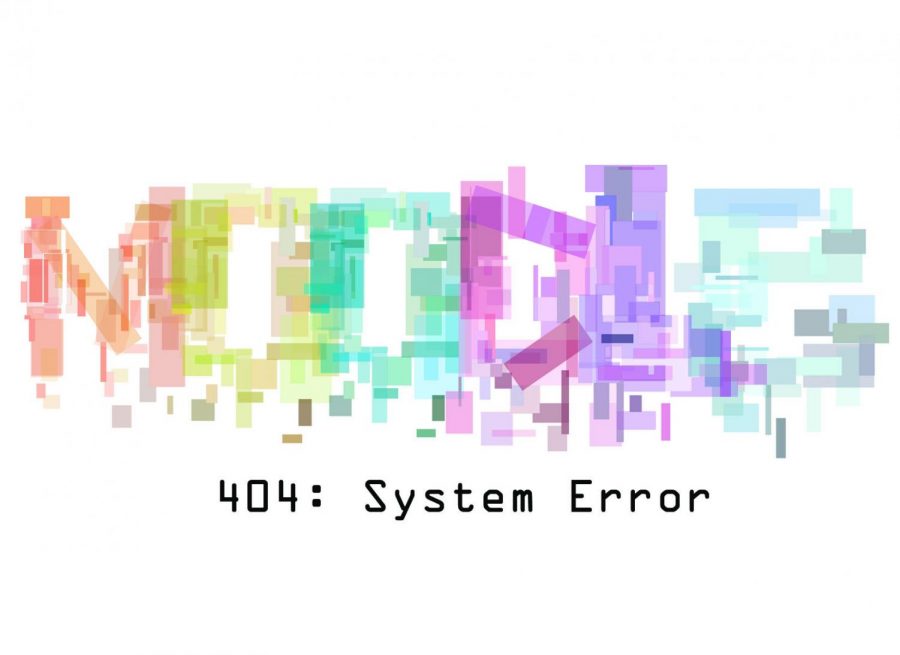Data surge, outages prompt partnership, cost college money
Moodle
February 2, 2015
Amid the college’s long-touted plan to push classroom content from OASIS to Moodle, a huge surge in uploads caused the learning management system to crash Jan. 22, prompting some members of the campus community to question the college’s reliance on the much-criticized system.
Moodle has been known to crash intermittently, the latest instance being a Jan. 29 outage. The 30 percent increase in uploads to the server that caused the Jan. 22 outage just days before also spawned an agreement with Moodle Rooms, one of the leading Moodle service providers, to outsource all Moodle data storage from the college to the company’s servers, according to Ron Aderhold, interim chief information officer of the office of Information Technology .
Aderhold said the college’s servers did not have enough storage capacity for the influx of data. The IT office began transferring all Moodle data to Moodle Rooms servers Jan. 26 in a process expected to be completed in two months, Aderhold said.
Aderhold also said that IT has added storage to the college’s Moodle servers to maintain the system’s stability during this 60-day period. Aderhold said in an emailed statement that the added storage was allocated and cost the college no money but declined to comment on the cost of the college’s new agreement with Moodle Rooms.
Aderhold said Moodle has not crashed since September. The learning management system has a consistent history of faulty behavior and technical issues, he said.
“When I [started in September], I noticed that [Moodle] just wasn’t a robust, well-supported system,” Aderhold said. “I can’t really speak to what decisions were made beforehand other than it wasn’t well-supported. We didn’t have really any depth of talent here on staff to support it.”
Aderhold said the college didn’t have enough knowledge or hardware and software to properly support Moodle’s functions. However, he said outsourcing Moodle’s data should solve most of the system’s issues and hopes there will be no performance issues during the transition.
It is important for teachers to incorporate Moodle into their curriculum for the college to develop a larger online presence in the classroom, said Stan Wearden, senior vice president and provost.
“Moodle is used at a number of other colleges and universities that have a much more robust presence in the online learning environment than we do right now,” Wearden said. “It’s a good system for us to use as we expand our online offerings.”
Insook Choi, associate provost of Creative Technology, said having more web-based classes is important to the college, but it should seek better, more versatile systems if it wants to create more online courses.
“[A] Moodle-like learning management system is not going to cover everything that we need covered in Columbia,” Choi said.
Choi said Moodle’s affordability plays a role in the college’s decision to use the system. According to Wearden, Moodle is affordable for the college but also saves students money because they do not have to pay for an expensive learning management system.
Stephanie Frank, a lecturer in the Humanities, History & Social Sciences Department, said she thinks Moodle is a useful tool in the classroom, but the system can be unreliable.
“I’ve had problems with Moodle,” Frank said. “Everyone has. The major problems with it [are], first of all, its unreliability and, second of all, its clunky-ness. It takes a long time to upload things. It takes a lot of steps to get things done, which is annoying and time-consuming if you’re teaching a bunch of classes.”
Sharayah Outerbridge, a junior theatre major, said she has seen some of her teachers struggle at times when trying to use Moodle.
“They haven’t had a requirement to use it,” Outerbridge said. “To completely switch to something new is really frazzling for some of them.”
She said she hopes to see her teachers utilize Moodle because it is easier for her to have one place where all her classes are managed.
Wearden said it is only required that all teachers post their syllabi on Moodle, but any additional use of the site is strongly encouraged.
According to Wearden, Moodle is a superior learning management system to OASIS, and Moodle Rooms will provide the support the college needs.
“I’ve had experience with a lot of different learning management systems, and none of them are perfect, but Moodle is definitely respected across the country in higher education as one of the better ones,” Wearden said.
David Noffs, instructional specialist for the Center for Innovation in Teaching Technology, said while he often receives positive feedback from professors regarding Moodle, he also hears when they are frustrated with the system.
Noffs said these frustrations are not a result of Moodle but rather Columbia’s technology infrastructure being unable to support the system.
“Moodle is not unreliable,” Noffs said. “If the server is overloaded, that’s a matter for IT to address and that’s what they’re trying to address with this move to Moodle Rooms.”








